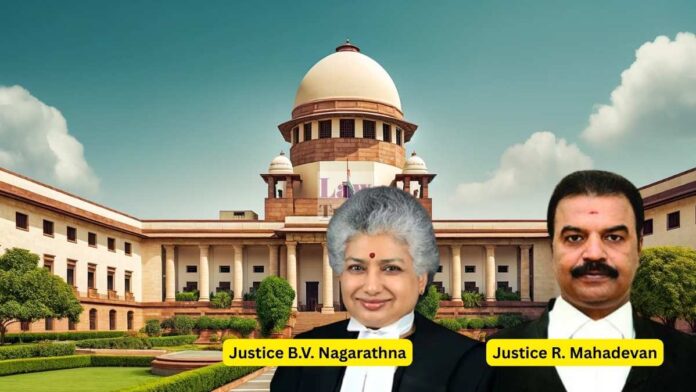The Supreme Court of India has set aside a judgment of the Uttarakhand High Court that had acquitted four individuals, citing that the decision was “cryptic and de hors any reasoning.” In the case of The State of Uttarakhand v. Anil & Ors., a bench of Justice B.V. Nagarathna and Justice R. Mahadevan remanded the
To Read More Please Subscribe to VIP Membership for Unlimited Access to All the Articles, Download Available Copies of Judgments/Order, Acess to Central/State Bare Acts, Advertisement Free Content, Access to More than 4000 Legal Drafts( Readymade Editable Formats of Suits, Petitions, Writs, Legal Notices, Divorce Petitions, 138 Notices, Bail Applications etc.) in Hindi and English.




